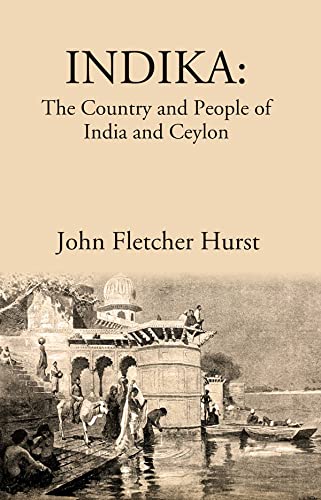INDIKA: The Country and People of India and Ceylon - HARDCOVER
INDIKA: The Country and People of India and Ceylon - HARDCOVER
Couldn't load pickup availability
About The Book -: The object of the following work is to describe India and Ceylon as they are to-day. But to make clear the existing condition of a country, and to account for it, the past must be constantly recognized. Therefore, at every stage of the this work the historical antecedents have been summoned, and made to do duty as interpreters of the existing India and Ceylon. My plan of travel required a journey to nearly all the large places, and to many of the more obscure, throughout the empire. Landing in Bombay, and going across the peninsula to Madras, I proceeded to Ceylon, and went into the interior as far as Kandy, the ancient capital. On embarking from Colombo I Landed in India again, this time near its southern extremity, and proceeded northwest ward to Mysore. For all statistical information my chief reliance has been the full tabular reports issued at Calcutta by the departments of the Indian government. For important suggestions while this work was in manuscript, and for special help during its passage through the press. About the Author -: John Fletcher Hurst (1834–1903) was an American bishop in the Methodist Episcopal Church and the first Chancellor of the American University in Washington, D.C. Born in Salem, Dorchester County, Maryland. Hurst graduated from Dickinson College in 1854 and in 1856 went to Germany to study at the University of Halle and the University of Heidelberg. From 1858 to 1866 he was engaged in pastoral work in America. He was ordained by Methodist Episcopal Bishop Thomas Asbury Morris in 1862. From 1866 to 1870 he filled a five-year appointment as Professor of Systematic Theology at the Martin Mission Institute in Bremen, Germany. In 1870, Hurst was chosen to teach Historical Theology at Drew Theological Seminary in Madison, New Jersey, where he was elected President in 1873, serving until elected to the Episcopacy in 1880
Share

